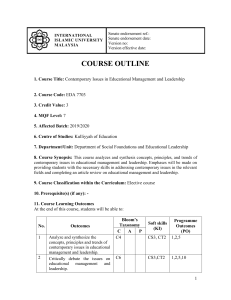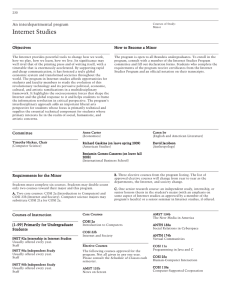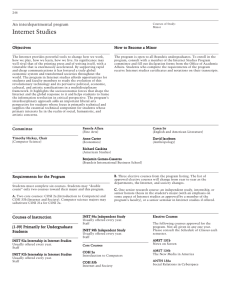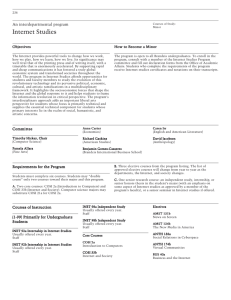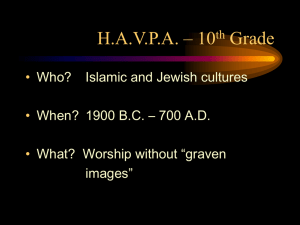IMES Learning Goals interdisciplinary curriculum organized and taught by faculty in
advertisement
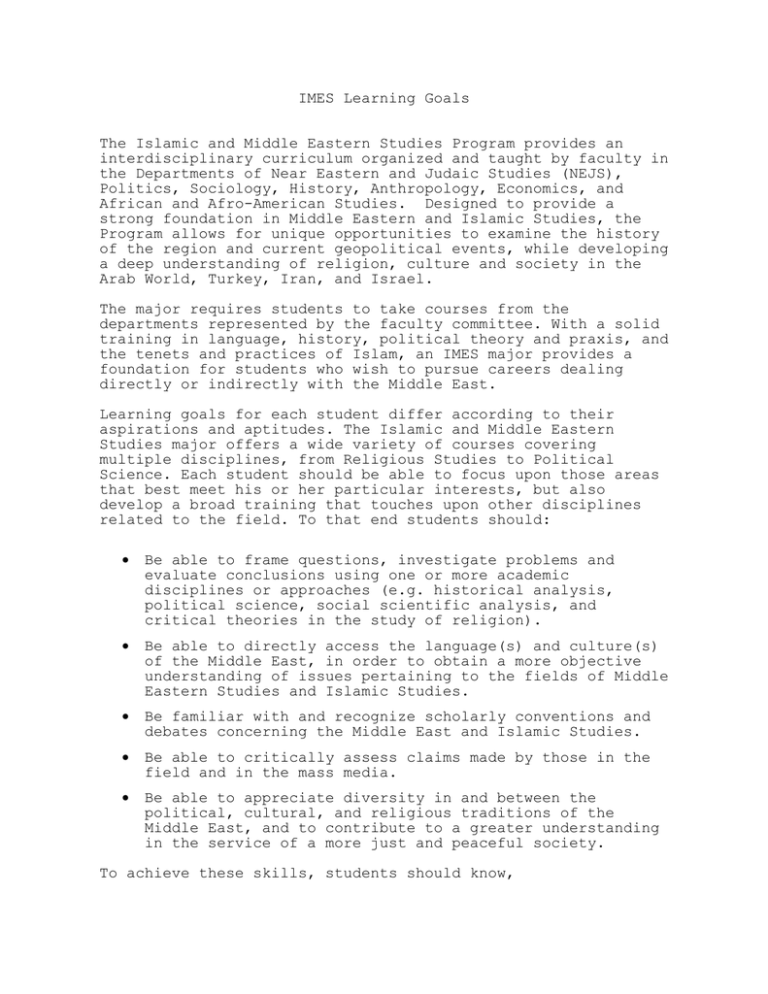
IMES Learning Goals The Islamic and Middle Eastern Studies Program provides an interdisciplinary curriculum organized and taught by faculty in the Departments of Near Eastern and Judaic Studies (NEJS), Politics, Sociology, History, Anthropology, Economics, and African and Afro-American Studies. Designed to provide a strong foundation in Middle Eastern and Islamic Studies, the Program allows for unique opportunities to examine the history of the region and current geopolitical events, while developing a deep understanding of religion, culture and society in the Arab World, Turkey, Iran, and Israel. The major requires students to take courses from the departments represented by the faculty committee. With a solid training in language, history, political theory and praxis, and the tenets and practices of Islam, an IMES major provides a foundation for students who wish to pursue careers dealing directly or indirectly with the Middle East. Learning goals for each student differ according to their aspirations and aptitudes. The Islamic and Middle Eastern Studies major offers a wide variety of courses covering multiple disciplines, from Religious Studies to Political Science. Each student should be able to focus upon those areas that best meet his or her particular interests, but also develop a broad training that touches upon other disciplines related to the field. To that end students should: Be able to frame questions, investigate problems and evaluate conclusions using one or more academic disciplines or approaches (e.g. historical analysis, political science, social scientific analysis, and critical theories in the study of religion). Be able to directly access the language(s) and culture(s) of the Middle East, in order to obtain a more objective understanding of issues pertaining to the fields of Middle Eastern Studies and Islamic Studies. Be familiar with and recognize scholarly conventions and debates concerning the Middle East and Islamic Studies. Be able to critically assess claims made by those in the field and in the mass media. Be able to appreciate diversity in and between the political, cultural, and religious traditions of the Middle East, and to contribute to a greater understanding in the service of a more just and peaceful society. To achieve these skills, students should know, The general history of the Middle East from the rise of Islam until the contemporary period, with specialized knowledge of their particular area, or period, of interest. The principle tenets and religious practices of Sunni and Shi’i Islam. The history of ideas in the Middle East and its relation to contemporary events.




